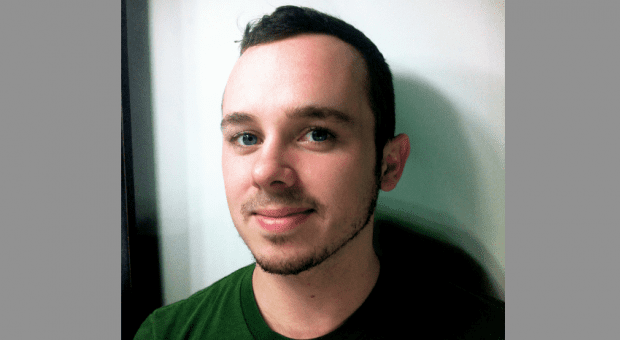A University of Toronto professor of virology plans to apologize to his class after he gave inaccurate and stigmatizing information about gay men and HIV.
Mounir AbouHaidar made the comments during a Dec 3 lecture in front of approximately 300 students.
Rodney Rousseau, a gay biochemistry and sexual diversity studies student who is HIV-positive, objected to the remarks, which he called “really triggering for a positive person.
“So that’s why it’s extra offensive to me,” says Rousseau, noting that a small group of students are planning an educational protest for the beginning of January when classes resume.
Rousseau provided Xtra with an audio recording of the lecture, in which AbouHaidar states, “The guy will have a resistant strain, or resistant strains, of the virus to most of the drugs which are available; then he will sleep with his boyfriend, which is, as we call it, men sleeping with men, MSM, and then give his boyfriend the best gift, give him a strain of the virus, which is resistant to all the drugs. That’s what he has, that’s what it is, that’s probably 90 percent, 90 percent . . . HIV has millions of people, 90 percent from homosexual.”
Rousseau says that when he heard this misinformation he raised his hand and objected.
HIV infections among men who sleep with men in fact account for 50 percent of all HIV infections in Canada, according to CATIE (the Canadian AIDS Treatment Exchange). “Nowhere near the 90 percent professor AbouHaidar has claimed,” Rousseau says, noting he also told AbouHaidar he is unfairly stigmatizing men who have sex with men as “HIV gift-givers.”
Rousseau says AbouHaidar is framing the virus as a “gift” between “boyfriends,” and by using male pronouns and gay men as examples, he seems to be telling his class that HIV is a gay issue.
“He told me that he didn’t need correcting, that he wasn’t giving misinformation,” Rousseau says, noting he’s also noticed that AbouHaidar only ever talks about a person with HIV as a gay man. “Throughout the whole class he uses the term ‘boyfriend’ to define the partner of another man,” he says. “That’s done specifically to say HIV is a gay issue . . . he never uses ‘partner,’ ‘they’ and he definitely never uses ‘she.’
“He needs to stop saying things that aren’t true and perpetuating the stigma of a social issue.”
Rousseau wants to see AbouHaidar apologize, correct the misinformation in class and perhaps undertake some education on the social impacts of HIV.
For his part, AbouHaidar, who has been teaching HIV virology for about 30 years, tells Xtra that he plans to correct his statements and provide his class with accurate information. “Well, if I said 90 percent, I’m wrong,” he says.
Regarding the use of male pronouns, AbouHaidar says students shouldn’t read so much into it. “I’m not anti-gay or pro-gay. It’s not my business who sleeps with who. It’s my job to tell students how the virus is transmitted.”
AbouHaidar says he wasn’t aware that referring to HIV as a “gift” — which implies that the person being infected with HIV is asking for it — could be seen as problematic.
“It wasn’t meant to be against any group,” he says. “Now, because there are many viral drugs that are used, there are resistant strains circulating around. Sometimes in lectures I am known to be funny, and make jokes, in order to make stuff stick [with students] . . . these are education methods.
“It’s obviously not a good gift,” he says. “I can see how it’s [derogatory]. But we are all adults.”
AbouHaidar says that if students have concerns or wish to challenge his information, they could raise the issue during the tutorial sessions or schedule a meeting after class. He says he has never heard complaints about the content of his lectures before. “That is the forum to ask questions. My door is always open. I would speak to anyone about this.”
It’s also possible, he says, that part of the problem is a language barrier. He says he has a thick Lebanese accent. “And I was educated in France. I have a bit of a French accent as well. When I give examples, and talk, I am not against anybody. I am warning my students to be aware. It’s their lives. One mistake can cost them their lives.”
AbouHaidar maintains he is apologetic and doesn’t want to stigmatize anyone. “I feel really bad. We want to clear this virus from the world. We work in vaccines so hopefully in the long run we might end HIV. When you see the millions of people dying, you are scared. [But] I don’t want to stigmatize anyone . . . perhaps the way I express something is not right for some people.
“I am not afraid to say I am wrong, and I am sorry. If I said 90 percent, that’s wrong. I will correct [the information] for the class.”
While Rousseau is pleased that AbouHaidar will correct the record in class, he still plans to hold a demonstration after the holidays.
“I definitely think there needs to be some discussion because it’s still a problematic situation that it occurred at all,” he says. “Do I want to point my finger at [AbouHaidar]? No. He seems to be accepting fault in this rather quickly, and that’s really good. So I have to consider the best way to create a more broad discussion around this issue.”

 Why you can trust Xtra
Why you can trust Xtra


